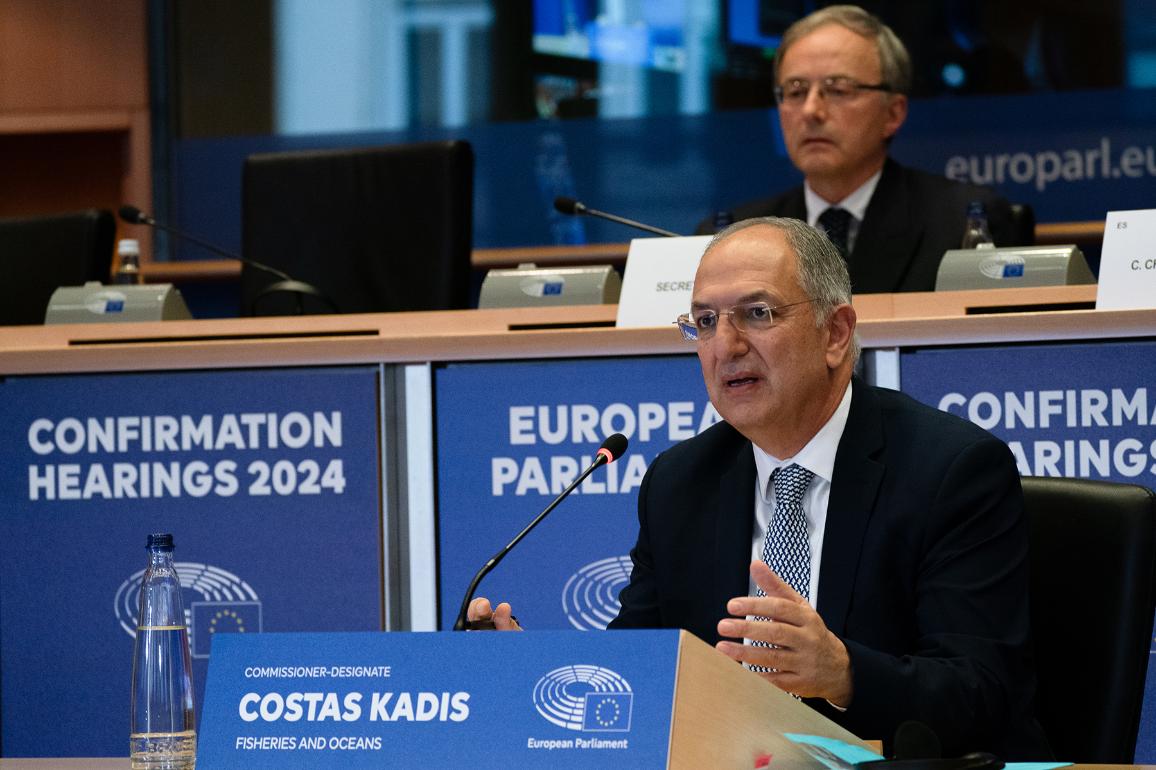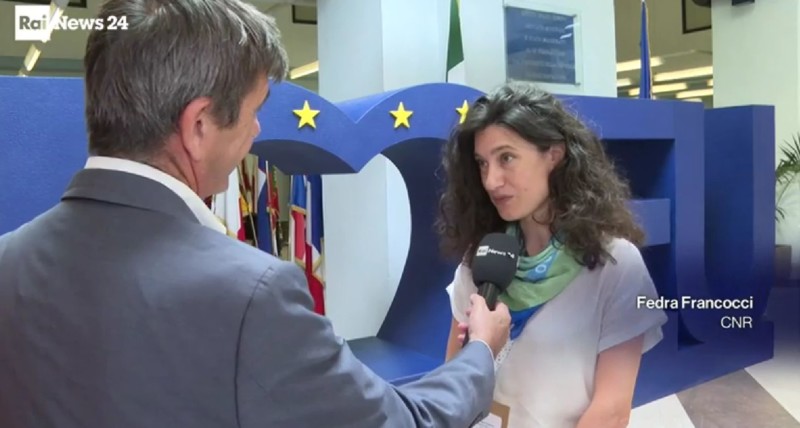The Fisheries Committee questioned Costas Kadis, Cyprus’ candidate for the Fisheries and Oceans portfolio, on Wednesday.
Ensuring profitability, promoting the blue economy, and protecting the oceans
In his opening speech, Mr. Kadis discussed the need to ensure the sustainability, competitiveness, and resilience of the fishing and aquaculture sectors, while promoting the blue economy and protecting the oceans.
To achieve this, the designated commissioner will rely on the findings of the ongoing evaluation of the Common Fisheries Policy (CFP), a comprehensive analysis of current legislation that will include wide consultations with stakeholders. The results of this evaluation, expected by the end of 2025, will be debated with Parliament. In response to questions from MEPs, Mr. Kadis did not rule out legislative changes based on this evaluation and the evolution of the EU fishing fleet.
When asked about the rules regarding the landing obligation, the designated commissioner emphasized the need to combat discards and the importance of having complete and high-quality data. He stressed that fish discards neither increase profitability nor marine sustainability.
Aware of the differences between large-scale and small-scale fishing, as well as the significant variations between fishing areas, Mr. Kadis promised to deliver a roadmap for the energy transition of fishing and aquaculture by the end of 2025, with a 2050 perspective. He also highlighted the social dimension of the fishing sector and committed to supporting coastal communities.
Mr. Kadis raised other challenges, such as the aging fleet, skills and labor shortages, gender imbalances in the sector, the lack of generational renewal, and the need to reduce administrative formalities. He added that all these issues would be at the heart of the European Ocean Pact, a roadmap he plans to present in June 2025.
Baltic Sea, Brexit, and relations with third countries
In response to MEPs, the designated commissioner defended a holistic approach to the degradation of the Baltic Sea, one that involves all scientific and environmental stakeholders. Regarding the renegotiation of fishing quotas with the UK in 2026, Mr. Kadis committed to ensuring that EU vessels would retain access to their historical fishing zones.
The designated commissioner will also tackle the import of illegal or unregulated fisheries products, strengthen the Union’s food autonomy, and ensure that sustainable fishing partnership agreements with third countries enforce standards equivalent to those of the EU.
Protecting biodiversity and its economic benefits
In response to questions, the designated commissioner promised to promote science-based solutions to address sectoral challenges while listening to stakeholders, particularly local communities. He emphasized the role of the sea as a carbon sink and the need to ensure biodiversity, both for sustainability and economic reasons. Mr. Kadis underscored the role of protected areas in this regard, noting that they also increase fishing revenues.
Next Steps
The President and the coordinators of the political groups of the Fisheries Committee will meet after the hearing to assess the performance and qualifications of the designated commissioner.
Based on the recommendations from the Fisheries Committee, the Conference of Presidents (comprising Parliament President Roberta Metsola and the Presidents of the political groups) will carry out the final evaluation and declare the hearings closed on November 21. Once the hearings are declared closed by the Conference of Presidents, the evaluation letters will be published.
The approval of the entire College of Commissioners by Members of Parliament (by a majority of votes cast, by roll call) is currently scheduled for the plenary session from November 25 to 28 in Strasbourg.
Source: europarl



